The Boeing B-52 primarily provides the United States with immediate nuclear and conventional global strike capability. The B-52 is the most combat capable bomber in the U.S. inventory. Due to its high mission-capable rate, large payload, long range, persistence and ability to employ both nuclear and conventional precision standoff weapons, the B-52 continues to be a critical contributor to the U.S. National Security Strategy.
Serving the U.S. for Decades to Come
B-52 Milestones
B-52 Technical Specifications
| Primary Function | Heavy bomber |
| Power plant | 8 Pratt & Whitney engines TF33-P-3/103 turbofan |
| Thrust | Each engine up to 17,000 lbs |
| Wingspan | 185 ft (56.4 m) |
| Length | 159 ft, 4 in (48.5 m) |
| Height | 40 ft, 8 in (12.4 m) |
| Weight | Approximately 185,000 lbs (83,250 kg) |
| Max Takeoff Weight | 488,000 lbs (219,600 kg) |
| Fuel Capacity | 312,197 lbs |
| Payload | 70,000 lbs (31,500 kg) |
| Speed | 650 mph (Mach 0.86) |
| Range | 8,800 mi (7,652 nautical miles) |
| Ceiling | 50,000 ft (15,150 m) |
| Crew | 5 (aircraft commander, pilot, radar navigator, navigator and electronic warfare officer |
| Initial operating capability | May 1961 (Current ‘H’ Model) |
| Armament | Approximately 70,000 lbs (31,500 kg) mixed ordnance -- bombs, smart weapons, mines and missiles. Modified to carry air-launched cruise missiles and Miniature Air Launched Decoy. |
B-52 Gallery
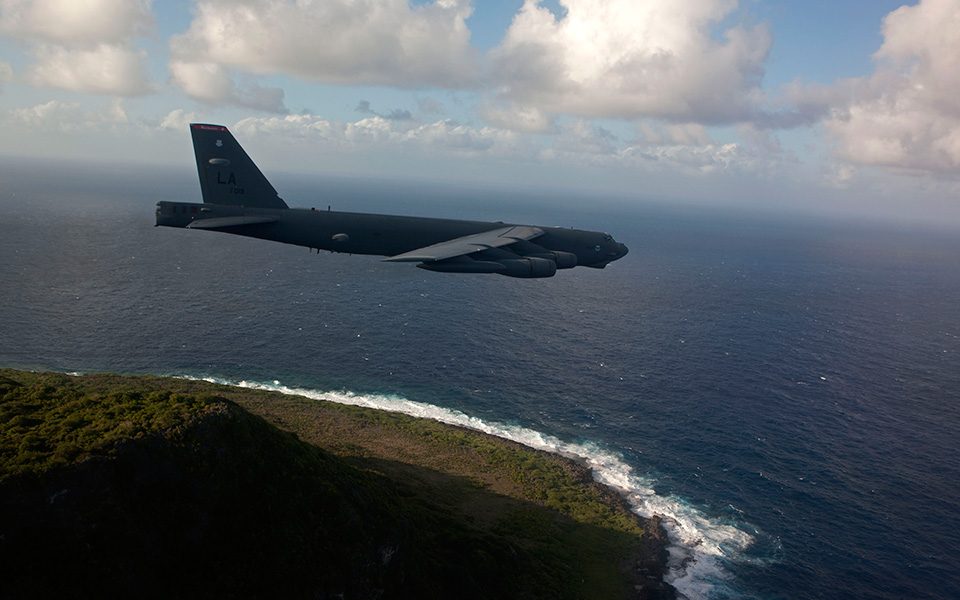
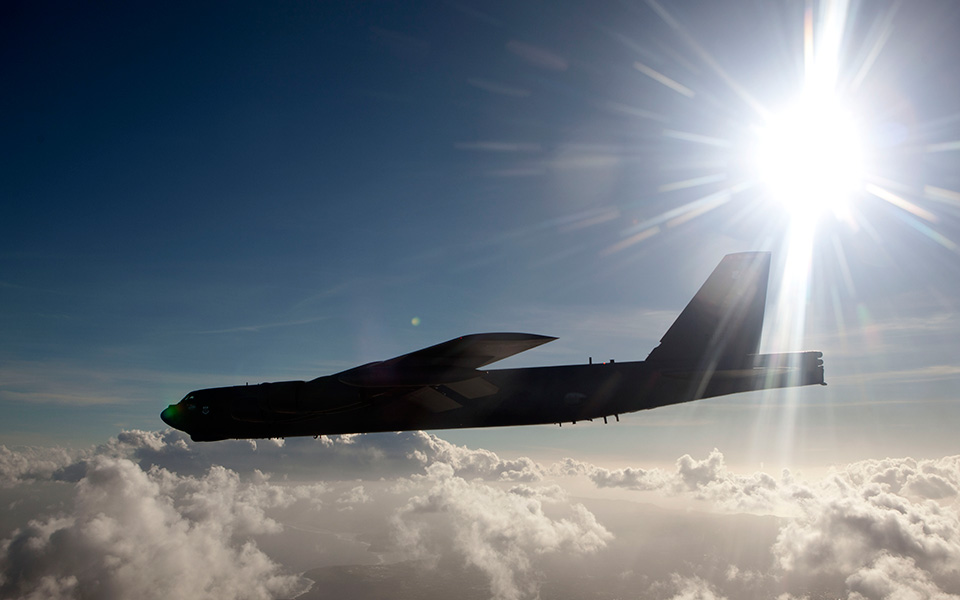
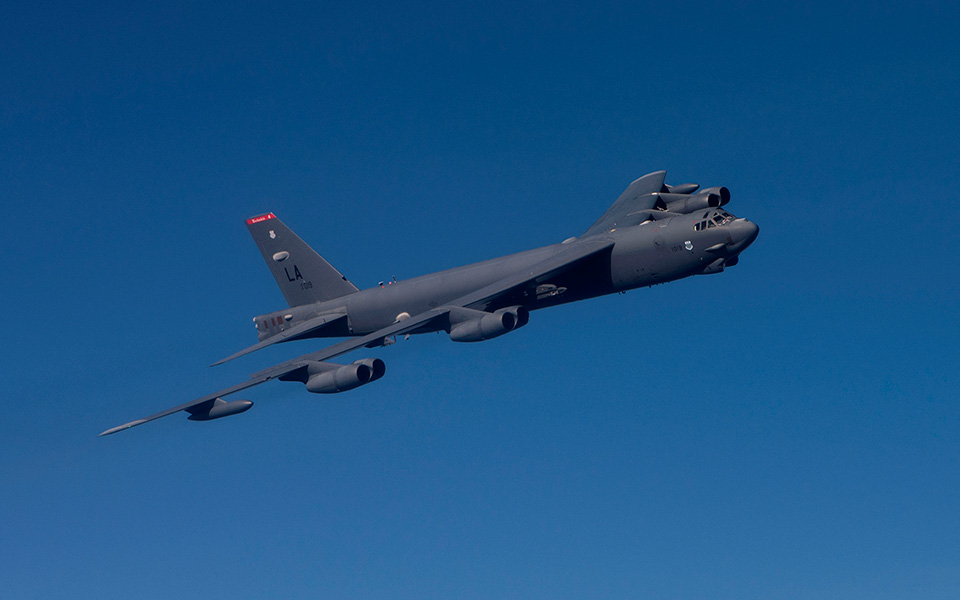
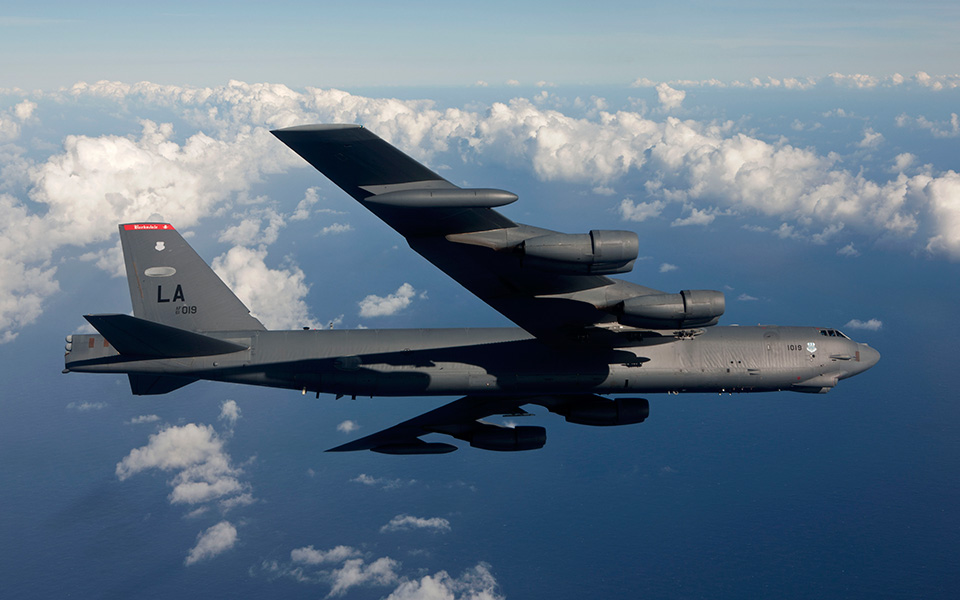
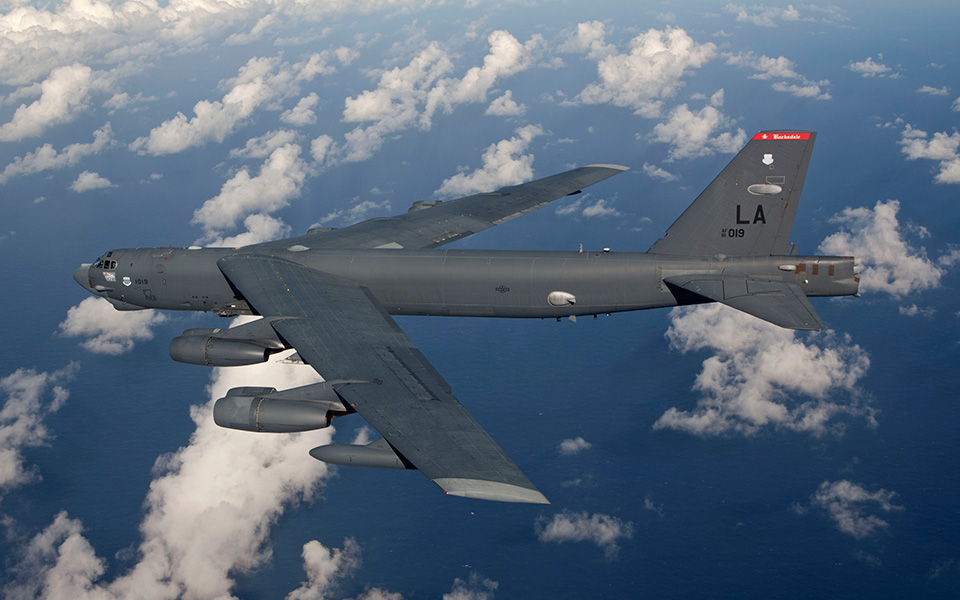
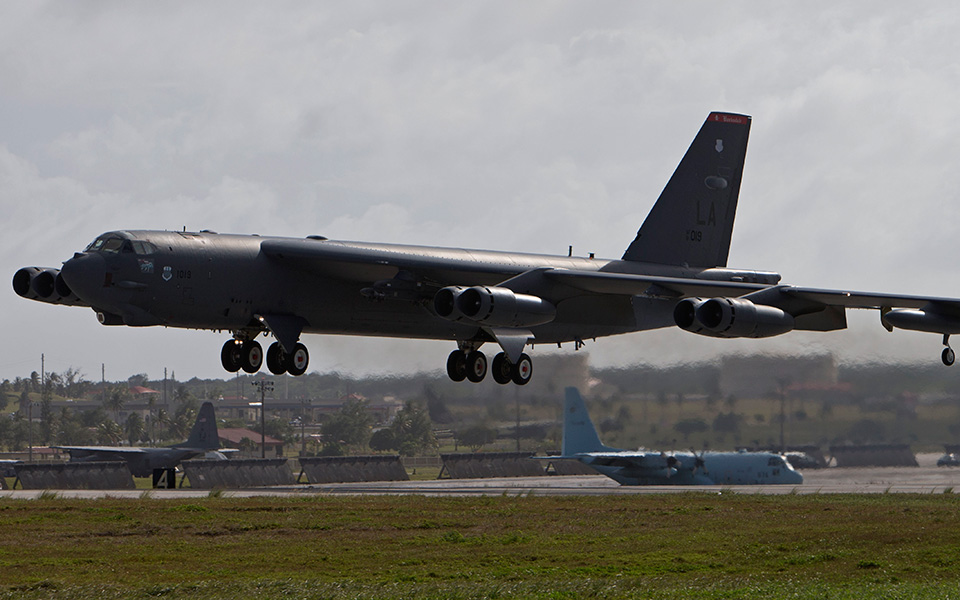
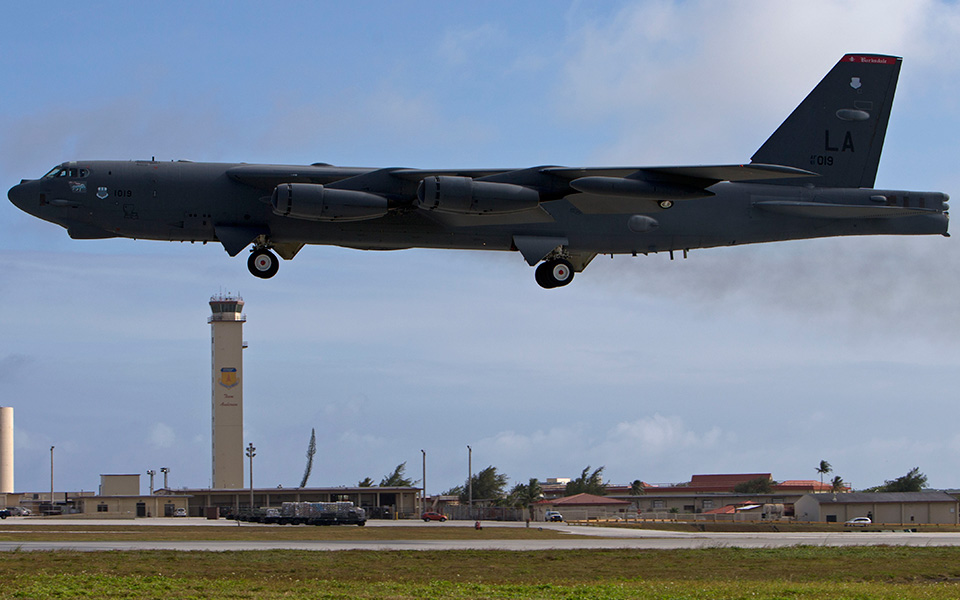
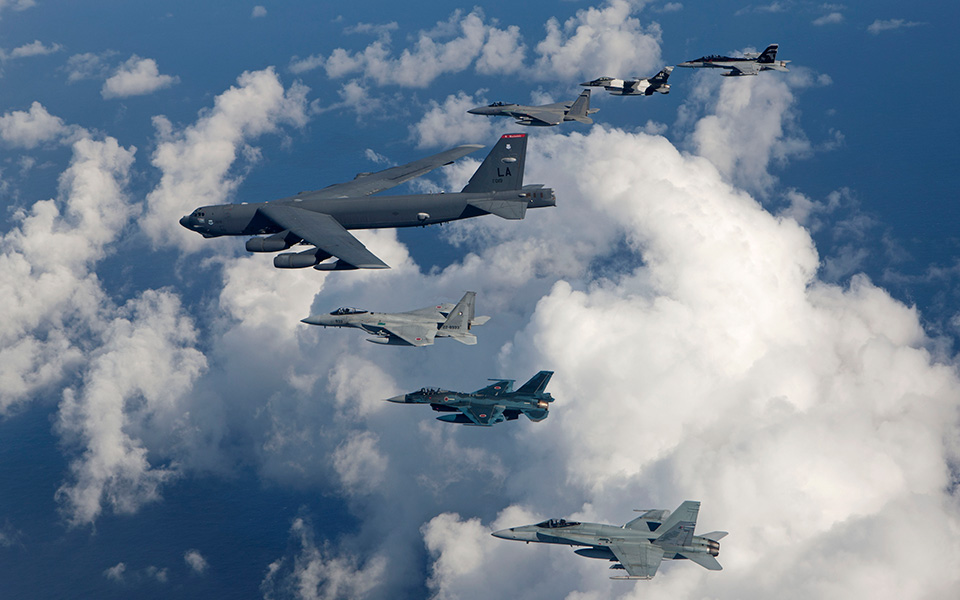
- Image 1
- Image 2
- Image 3
- Image 4
- Image 5
- Image 6
- Image 7
- Image 8
B-52 Customer
Originally designed as an intercontinental, high-altitude nuclear bomber, the B-52’s operational capabilities have advanced over the years to meet changing national defense needs. Boeing built 744 B-52s and delivered the last, a B-52H, in October 1962. Only the H model is still in the Air Force inventory; it is assigned to Air Force Global Strike Command.

B-52 Quick Facts
- The B-52’s 185-foot wingspan is too wide to take off or land in a crossing using traditional flying techniques.
- Boeing engineers designed special landing gear that could align with the runway allowing special takeoffs and landings.
- The original design of the B-52 placed a gunner in the tail of the aircraft. Later designs moved the gunner forward with the rest of the crew.
- After the Gulf War in the early 1990s, the gunner position and defensive machine guns were eliminated.
- U.S. Air Force engineering studies suggest that the lifespan of the B-52 could extend beyond 2040.
